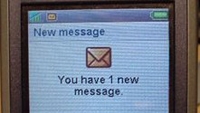Text messaging ban continues for athletic recruiting

Jrue Holiday, a 17-year-old basketball player, does not answer his cell phone. But send him a text message, and he will reply within seconds.
So, when college coaches wanted to catch the attention of Holiday, one of the best basketball players in the class of 2008, they did not bother calling.
“They’d text me,” Holiday said, a senior at Campbell Hall in North Hollywood, CA, who is planning to attend UCLA. “Like, ‘How you doing? How you been playing?’ It showed me that they wanted me.”
Desperate to connect with the best players, college coaches have adopted text messaging with zeal, “The New York Times” reported.
However, the practice is causing problems for many young athletes. Beginning last summer, the NCAA banned Division I colleges from using text messaging to recruit athletes, citing complaints from students that the practice was driving up cell phone bills and intruding on personal time. On Jan. 12, the NCAA revisited the issue, this time voting 240 to 65 to maintain the ban.
Many college coaches say text messaging is an effective way to build a casual relationship with potential recruits.
Kerry Kenny, the incoming chairman of the NCAA’s Division I Student Athlete Advisory Committee (who played basketball at Lafayette College), asked delegates to uphold the ban. He called text messaging intrusive, putting an undue burden on recruits and parents with messages coming in at all hours.
The professional video industry's #1 source for news, trends and product and tech information. Sign up below.
The American Football Coaches Association discussed the ban last week during their convention in Anaheim, CA. They originally opposed the ban, while the National Association of Basketball Coaches surveyed members and found them almost evenly split on the issue.
